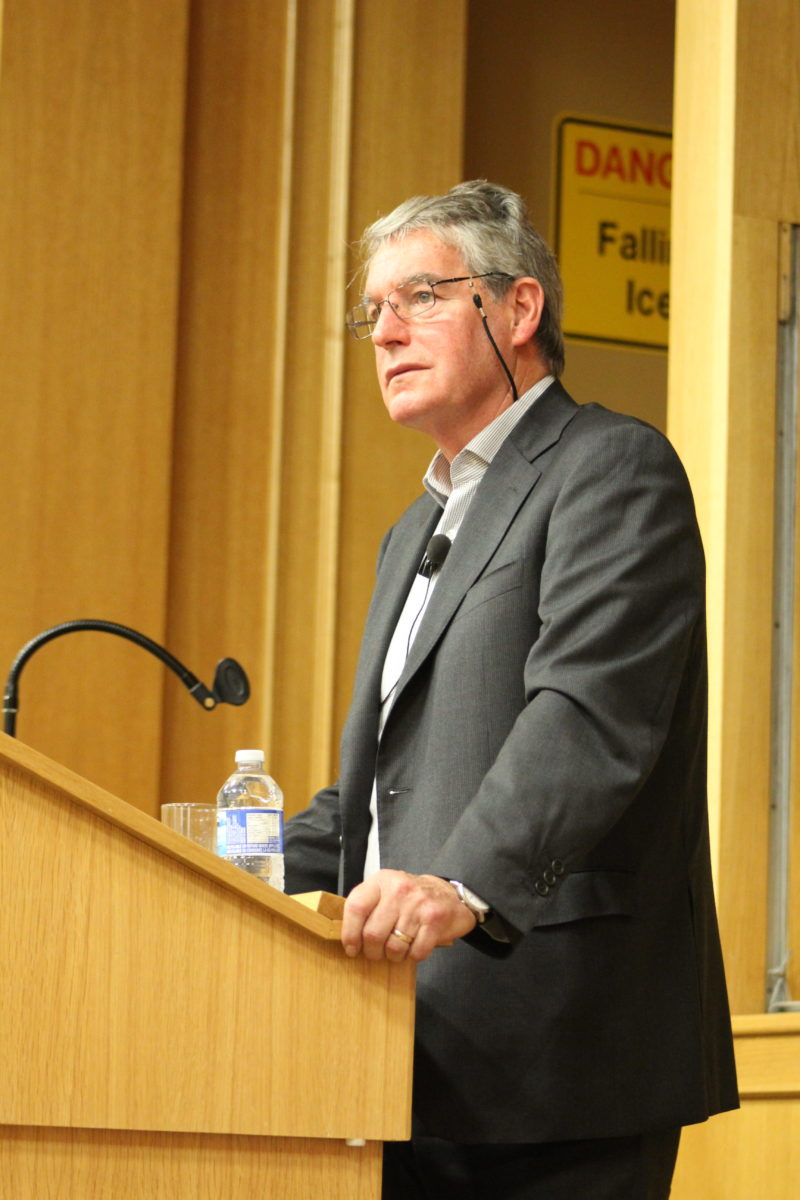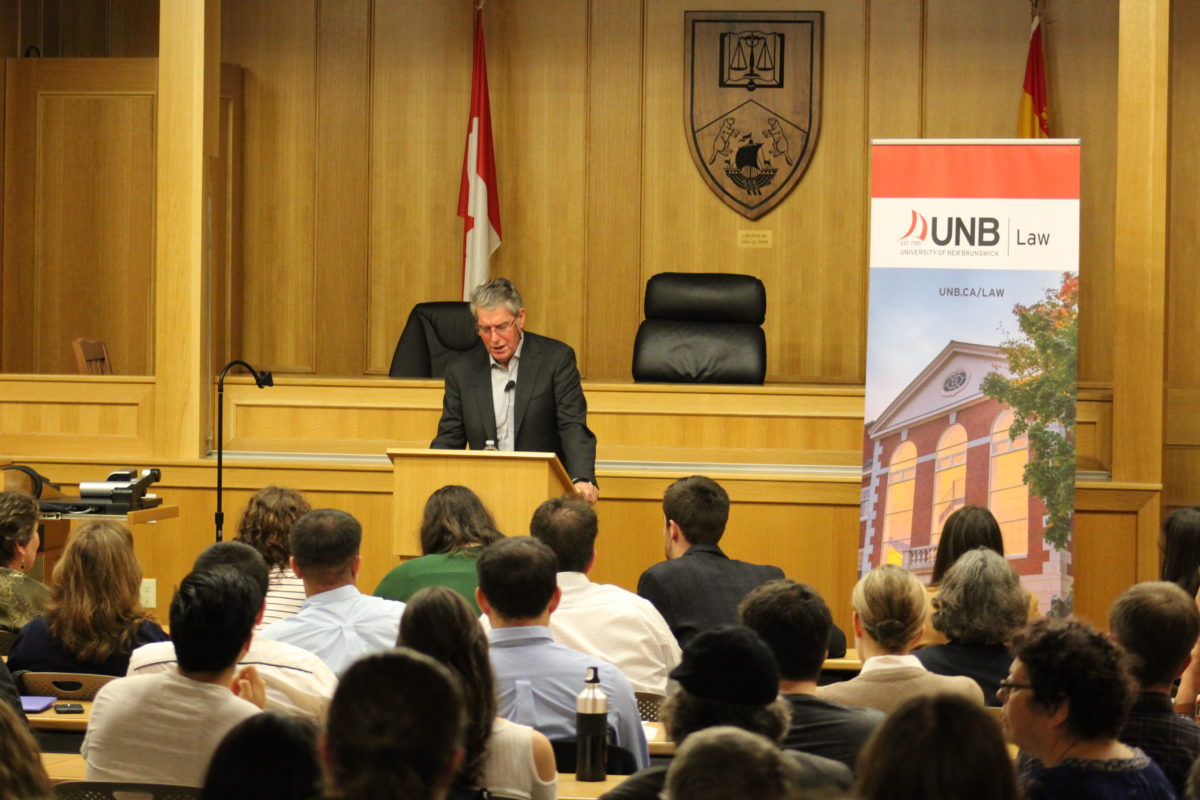Lawyer Dennis Edney recalled his first time meeting a young Omar Khadr in a concrete, windowless and freezing cold cell at the Guantanamo Bay detention centre.
Khadr was sitting on the edge of the bed, shackled to the floor, partially blind and paralyzed with his whole body suffering from extensive shrapnel injuries.
“He reminded me of a little bird, completely broken huddled to himself. And I couldn’t believe what I was seeing,” Edney said.
“I didn’t know what to do, whether to cry, to shout. I was just shocked.”
A few hundred students, faculty and members of the public turned out for Edney’s lecture at the University of New Brunswick law school on Nov. 26. It had to be streamed in two overflow rooms because of the large turnout.
The acclaimed lawyer successfully fought for Khadr, the youngest prisoner held at the famous United States facility, to be released.

Edney said he was directly interested in speaking to students, as he said it is up to them to change the “mess of the world” created by previous generations.
He began his talk by pointing out a tendency to think stability in society will remain, but said the “utter unpredictability” of history shows otherwise.
Edney said the international court of justice is under attack, the European Union is threatened and he described Brexit as a moment where foundations of liberal democracy had collapsed.
The lawyer told the audience that last year he spent two separate occasions by the Syrian border, and said the impact of warfare was hard to watch without being overwhelmed by “horror and shame.”
Edney said bodies have piled up and buildings have been reduced to rubble by bombs, while the UN Security Council chose to push the obligation of international law aside.
“It signals that we have moved away from the global village concept and retrenched back into ourselves.”
Edney called for a major overhaul of the UN — an organization whose “ultimate constituency is humanity” — and warned it could have a bleak fate.
He suggested society is at a critical juncture in world history. Approximately 62 million people are displaced by war, famine and conflict. One out of every 113 people in the world today is either a refugee, asylum seeker or internally displaced, he said, while the desire to scapegoat newcomers is a “virus” infecting many.
Edney told the crowd intolerance is not absent in Canada. The number of police reported hate crimes against Muslims in Canada increased by 60 per cent between 2014 and 2015, according to Statistics Canada.
The most mortal threat to democracy is that the rich are the biggest skeptics of democracy, and the poor are its greatest supporters, he said. Civil ignorance, or the inability of people to understand how government functions, is on the rise.
“Today, I say to you, we are facing danger from within,” Edney said.
‘Outside the reach of law’
Edney described Guantanamo Bay as a complex of prisons, where approximately 1,000 Muslim men have been held captive and subject to torture, all without judicial oversight.
He recalled the moment when the first media images of detainees were visible in Jan. 2002. Prisoners were hooded and shackled, an experience Edney compared to how slaves were transported 400 years earlier.
“It was the unlawful transportation to a world outside the reach of law, and intended to remain so,” he said.
“In that world crimes against humanity were carried out.”
Edney, who had two young sons at the time, said he was outraged by the images. Then he saw 15-year-old Khadr.
He wrote to the Liberal government to inquire about status of Khadr, a Canadian citizen, and remind officials of their obligation to assist him under international law. He never heard back, so he took the quest for justice into his own hands.
“I ignored the voices of those who said I should take care of myself,” he said.
Edney said the challenge to defend Khadr took up 15 years of his life, used up most of his savings and made him miss the high school graduations of both of his sons. He appeared in courts in both the U.S. and Canada.
“Had I turned away, I would have had to lie to myself … and continue that lie forever if I wanted some peace,” Edney said.
He concluded his lecture by urging belief in the ultimate justice, a struggle which should never be abandoned.
“We don’t have to engage in grand heroic actions to participate in the process of change, through small acts, when multiplied by millions of people, the world can be transformed.”

